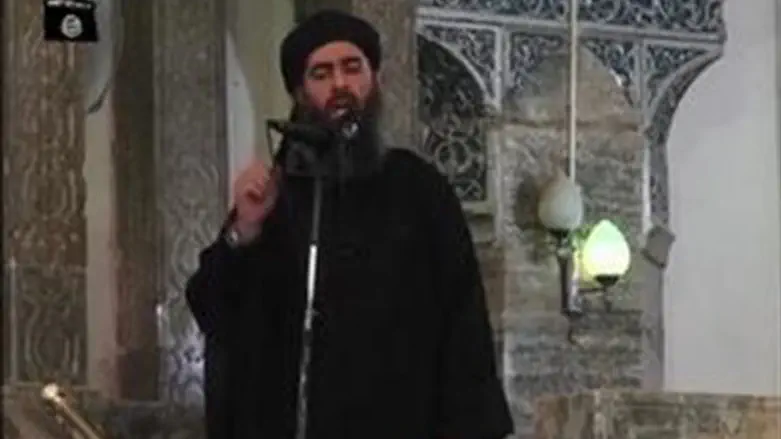
The Islamic State's release last week of an audio message by Abu Bakr al-Baghdadi reaffirmed his leadership of the group following a six-month silence and rumors over his health.
In his half-hour speech posted on jihadist forums on Thursday, Baghdadi calls for a general mobilization and urges all Muslims to move to the caliphate he proclaimed last year or wage jihad (holy war) wherever they are.
"I think this release partly has to do with rumours of his supposed incapacitation," said Aymenn Jawad al-Tamimi of the Middle East Forum research group.
Rumors emerged last month that Baghdadi was seriously wounded in a March air strike and had relinquished the organisation's leadership to a terrorist called Abu Alaa al-Afari.
"I do indeed think the release is well timed," said Patrick Skinner, an analyst with the Soufan Group intelligence consultancy.
"It was important for him even in audio to show some level of engagement and persuasion. The group depends on image as much as reality," he told AFP.
The recording provides no clues as to Baghdadi's health but largely dispels any notion he is no longer the overall leader of an organisation which now claims branches all over the region, as well as in Asia and Africa.
A previous recording, which dates back to November, was also released a few days after rumors that he had been killed or wounded in an air raid.
Thursday's message was not immediately authenticated or dated but the credibility of previous such releases by the group has in most cases stood the test of time.
Baghdadi's speech alludes mostly to battles in Anbar province and the Baiji area but not in Tikrit, suggesting it was recorded after the government took it back in early April.
Hassan Hassan, co-author of the acclaimed and recently published "ISIS: Inside the Army of Terror", said his assessment was also that the recording post-dated claims of his incapacitation.
"Abu Bakr al-Baghdadi's new statement was most likely recorded in last five days of April. Almost certain," he tweeted.
Secretive structure
Afari, an Iraqi from the Tal Afar region who is also sometimes referred to as Abdulrahman al-Qaduli, was little known until last month.
The US State Department listed him - under the same Abd al-Rahman al-Qaduli - on its Rewards for Justice website, offering a $7-million bounty for information leading to him.
That makes him the Islamic State group's most senior leader on the list behind Baghdadi himself, who is in the $10-million bounty category.
The Iraqi defense ministry issued a statement on Wednesday suggesting Afari may have been killed in an air strike but the US-led coalition cast doubt on the claim.
ISIS' leadership structure remains shrouded in secrecy and there are only a handful of other senior figures on the US list.
Among them are Sheikh Abu Mohammed al-Adnani, the group's official spokesman, and Omar al-Shishani, a Georgian citizen considered one of ISIS' top military commanders.
ISIS has its roots in Iraq, where earlier incarnations of the group emerged in reaction to the 2003 US invasion, and Iraqis are thought to be the largest contingent in its higher echelons.
The Pentagon claimed in December that coalition air strikes had killed Abu Muslim al-Turkmani, a top Baghdadi aide, in December.
In his speech, Baghdadi is very much the fiery chief commander, calling for a general mobilization against the broad alliance of forces battling his organisation.
He says it is an obligation for all Muslims to emigrate to his so-called "caliphate" or wage jihad on their homeland.
"His address does have the tone of an 'end of times' approach to the fighting. He is going all in with everything he can, urging his listeners to do the same," Skinner said.
He and Tamimi agreed that Baghdadi desperately needed to find new momentum to break out of the recent stalemate, which has seen ISIS fail to make any significant gain in Iraq or Syria.
On the day the recording was released however, ISIS launched a fresh offensive on Ramadi that saw it eventually seize near-full control of Anbar's provincial capital, in what would be its biggest victory in months.
On Saturday, ISIS advanced in Syria as well, seizing control of part of the ancient city of Palmyra.
However, the jihadist group also suffered a major blow, when US special forces killed one of its most senior military leaders - Abu Sayyaf - in a daring raid in Syria.
